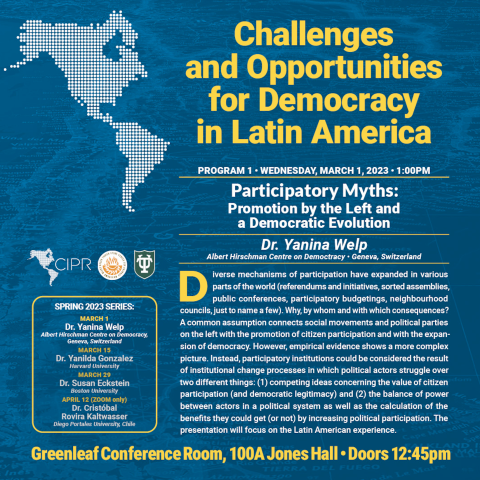
Diverse mechanisms of participation have expanded in various parts of the world (referendums and initiatives, sorted assemblies, public conferences, participatory budgeting, and neighborhood councils, just to name a few). Why, by whom, and with which consequences? A common assumption connects social movements and political parties on the left with the promotion of citizen participation and with the expan-
sion of democracy. However, empirical evidence shows a more complex picture. Instead, participatory institutions could be considered the result of institutional change processes in which political actors struggle over two different things: (1) competing ideas concerning the value of citizen participation (and democratic legitimacy) and (2) the balance of power between actors in a political system as well as the calculation of the benefits they could get (or not) by increasing political participation. The presentation will focus on the Latin American experience.
For more information on this series please visit our website or email sfialkof@tulane.edu
